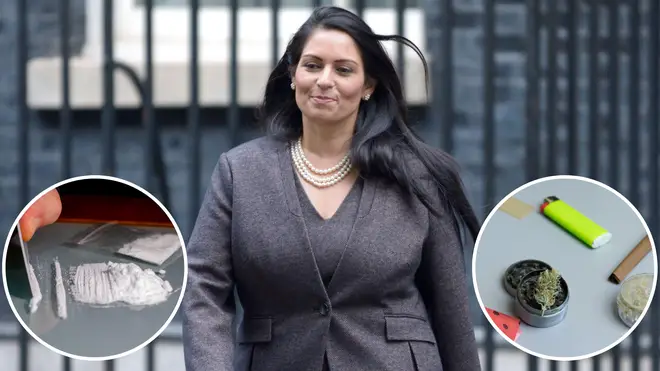
Iain Dale 10am - 12pm
18 July 2022, 08:01 | Updated: 18 July 2022, 08:03

Middle-class "recreational drug users" face having their passports and driving licences confiscated and being banned from nightclubs under new Government plans.
The Home Secretary is set to announce the new plans on Monday in the bid to punish recreational users of cocaine and cannabis who refuse to give up their habit.
Announcing the plans in a White Paper today, Priti Patel said: "We are cracking down on drug use, with tougher consequences for so-called recreational drug users.
"They will face the consequences of their actions through sanctions including fines and conditions to attend rehabilitation courses, while drug offenders could have their passports and driving licences confiscated.

James O'Brien reacts to middle-class drugs use crackdown
"Drugs are a scourge across society. Drug misuse puts lives at risk, fuels criminality and serious and violent crime and also results in the grotesque exploitation of young, vulnerable people."
Under the plan, first-time offenders will be required to pay for and attend a drug awareness course similar to the £120 speed awareness programmes.
If first-time offenders do not attend a course, they must pay an increased Fixed Penalty Notice or face prosecution.
Read more: Meltdown Monday: Britain grinds to a halt as temperatures head to 41c on hottest ever day
Those found using drugs for a second time will be given a caution, sent on a further drug awareness course and could face a up to three months of mandatory random drug testing.
Offenders caught for a third time are likely to be convicted and as part of a civil court order, could be subject to an exclusion order banning them from a specific location like a nightclub.
Third-time offenders may also be given a drug tag monitoring their usage, and see their passports and driving licences confiscated.
Ministers say the plans are needed to combat the 4,600 drug-related deaths each year in the UK and the white paper will now be subject to a 10-week consultation.